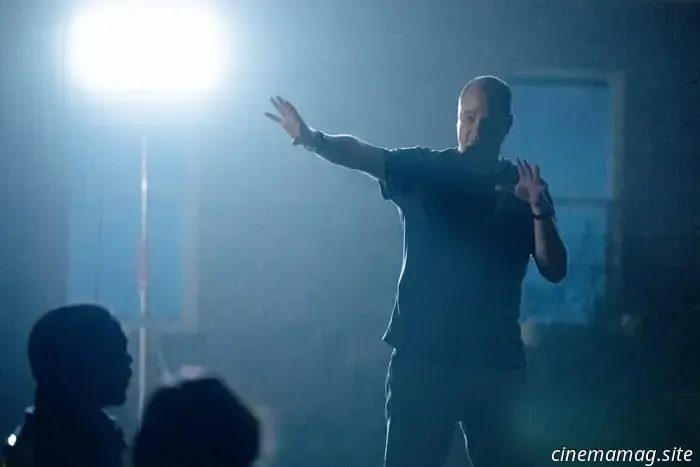
Director Mike Flanagan of The Life of Chuck discusses themes of horror, hope, and insights inspired by RuPaul.
Director Mike Flanagan, known for The Life of Chuck, spent several years in filmmaking and reality television before he broke into the industry with the low-budget supernatural horror film Absentia in 2011, funded by a Kickstarter campaign. Its success led to his long-awaited 2013 hit Oculus and many more respected horror films.
However, his goal wasn’t just to instill fear.
“Soon after Oculus, I came to realize that my kids would someday evaluate my work, and I asked myself, ‘What message are you leaving for them?’” Flanagan shared with MovieMaker. “My approach started to shift. Although initially, I was excited to create frightening stories with dark conclusions, I grew increasingly uneasy about exposing my children to stories filled with despair.”
Flanagan's reputation grew with films such as Hush, Before I Wake, Ouija: Origin of Evil, and two adaptations of Stephen King’s works: Gerald’s Game (2017) and Doctor Sleep (2019). He also achieved success on television with five Netflix series over the past seven years: The Haunting of Hill House, The Haunting of Bly Manor, Midnight Mass, The Midnight Club, and The Fall of the House of Usher.
Throughout this journey, he started to “ prioritize stories that highlight hope, empathy, and bravery.” His latest film, The Life of Chuck, embodies these principles while incorporating all the lessons he has learned. Featuring Tom Hiddleston, it represents another adaptation of a Stephen King tale, focusing on humanity rather than horror.
“I view the world as a frightening place, and I believe my children will face horror, fear, and anxiety more intensely than I did at their age,” Flanagan comments. “It’s crucial for me to tell scary stories, but I aim to narrate them in a way that encourages viewers, and my kids if they engage with them, to discover ways to be brave, to embrace empathy, forgiveness, and hope, even in the darkest and most terrifying times.”
In our latest segment of Things I’ve Learned as a MovieMaker, Mike Flanagan shared insights on genre, lessons from a RuPaul project, and the impact of sobriety on his success. Here are his thoughts.—M.M.
Mike Flanagan: Insights as a Moviemaker
1. Sci-fi poses questions, while comedies provide comfort. During a conversation with Guillermo del Toro for Netflix, I described the horror genre as a “mirror,” to which Guillermo replied: “Hatred and fear are mirrors. Love is a window into another world.” I’d like to add my perspective on genres: sci-fi explores possibilities and what might occur, while comedies serve as a form of release.
2. The scare is not the main focus of a horror film. To me, the scare is the least significant element and often the easiest to achieve. I once believed that the essence of horror was confronting someone with what fundamentally terrifies them, be it the unknown or uncomfortable truths about humanity. Nowadays, I feel it’s more crucial to address how to face that horror rather than just creating the scare.
3. You can learn significant filmmaking lessons from unexpected places, such as editing a RuPaul music video. I dedicated five years in Los Angeles to pursue my goals, and after nine years, I was still trying to make it happen. During that time, working full-time as a reality TV editor turned out to be an incredible learning experience.
I learned how to construct narratives from raw footage under tight deadlines and how to elicit emotions or arcs even from non-existent material in my archives. This improved everything I did. As a director, I became more adept at knowing what to capture to ensure I had all I needed during editing.
One of my favorite reality projects was editing RuPaul’s video for “Jealous Of My Boogie,” which creatively integrated moments from that season of RuPaul’s Drag Race, a style of editing I’ve continued to use. The techniques I developed for that video assisted me in projects like Absentia and Oculus, and it remains one of the most enjoyable experiences I had while editing, even if the song is now stuck in my head.
4. Film school is unnecessary, but studying film is vital. I've seen captivating films made with just phones, as well as costly senior thesis projects from prestigious film schools that fell short.
Understanding past works enhances your appreciation for how today’s editing software evolved, ultimately improving your craft.
5. Developing a vision for a story can be humbling. “Vision” is a term often overused in the industry. In my view, having a vision for a project is quite straightforward. It’s simply what you can envision—a waking dream or a light show in your mind. Translating that vision to an external screen involves hundreds of people syncing with you.
It emerges organically in your mind, but the challenge lies in how to articulate it: how to express it on


Other articles
 Physical editions of Five Nights at Freddy’s: Into the Pit are now released.
Mega Cat Studios and iam8bit have revealed the launch of physical editions of the spine-tingling adventure Five Nights at Freddy’s: Into the Pit for Nintendo Switch and Xbox Series X|S (including Smart Delivery). Check out the new launch trailer below…. The Retail Edition will include the game on disc or cartridge, along with a download code […]
Physical editions of Five Nights at Freddy’s: Into the Pit are now released.
Mega Cat Studios and iam8bit have revealed the launch of physical editions of the spine-tingling adventure Five Nights at Freddy’s: Into the Pit for Nintendo Switch and Xbox Series X|S (including Smart Delivery). Check out the new launch trailer below…. The Retail Edition will include the game on disc or cartridge, along with a download code […]
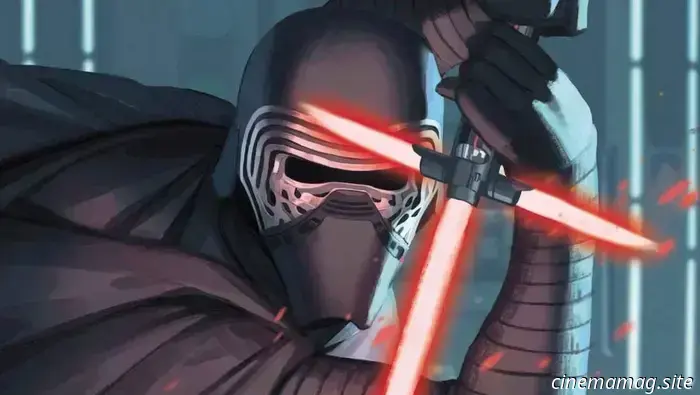 Star Wars: Legacy of Vader #5 - Comic Book Sneak Peek
Marvel Comics is set to release Star Wars: Legacy of Vader #5 this Wednesday, and you can view the official preview of the issue below... Target: Naboo: Kylo Ren and the First Order launch their attack on Naboo! But what unusual game is the young tyrant engaging in with the destinies of its inhabitants? What insights has Kylo gained […]
Star Wars: Legacy of Vader #5 - Comic Book Sneak Peek
Marvel Comics is set to release Star Wars: Legacy of Vader #5 this Wednesday, and you can view the official preview of the issue below... Target: Naboo: Kylo Ren and the First Order launch their attack on Naboo! But what unusual game is the young tyrant engaging in with the destinies of its inhabitants? What insights has Kylo gained […]
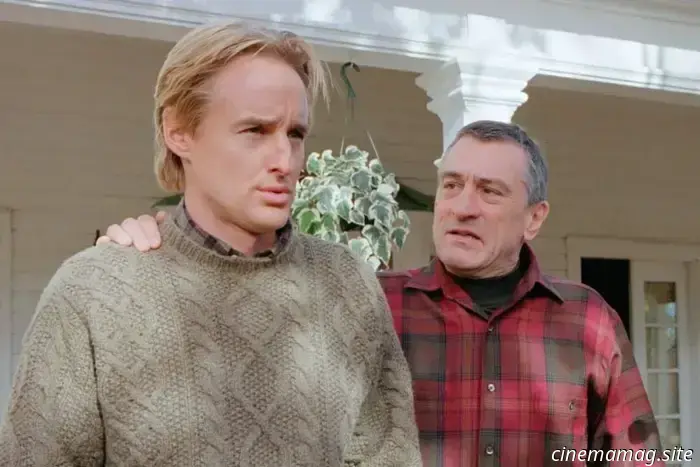 Owen Wilson is back for Meet The Parents 4 as initial plot details are unveiled.
In Meet the Parents 4, another original cast member is set to return as The Hollywood Reporter has revealed that Owen Wilson will be reprising his role from the previous three films. Wilson will reunite with original stars Ben Stiller, Robert De Niro, Teri Polo, and Blythe Danner, with series co-writer John Hamburg directing and writing this new installment. Wilson [...]
Owen Wilson is back for Meet The Parents 4 as initial plot details are unveiled.
In Meet the Parents 4, another original cast member is set to return as The Hollywood Reporter has revealed that Owen Wilson will be reprising his role from the previous three films. Wilson will reunite with original stars Ben Stiller, Robert De Niro, Teri Polo, and Blythe Danner, with series co-writer John Hamburg directing and writing this new installment. Wilson [...]
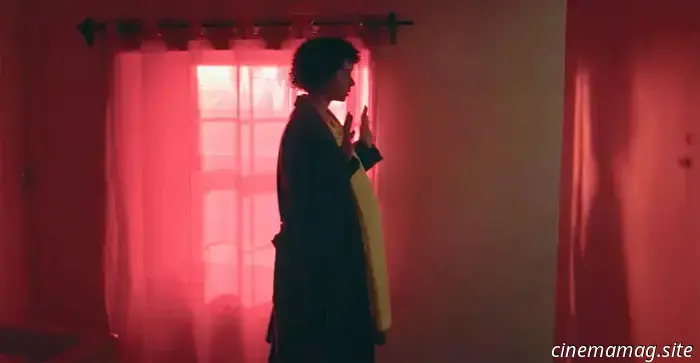 The dystopian sci-fi thriller Woken has released a trailer and a poster.
Dark Sky Films has released a trailer for Woken, a dystopian sci-fi thriller directed by Alan Friel. The film features Erin Kellyman (Solo: A Star Wars Story) in the role of a young woman who finds herself on an enigmatic small island, pregnant and with no recollection of her identity or how she arrived there. Meanwhile, a seemingly benevolent couple […]
The dystopian sci-fi thriller Woken has released a trailer and a poster.
Dark Sky Films has released a trailer for Woken, a dystopian sci-fi thriller directed by Alan Friel. The film features Erin Kellyman (Solo: A Star Wars Story) in the role of a young woman who finds herself on an enigmatic small island, pregnant and with no recollection of her identity or how she arrived there. Meanwhile, a seemingly benevolent couple […]
 Is Tyler Perry's Impactful Straw 'A Dead End for Black Women'?
(Spoiler alert: This article and the related podcast contain spoilers for Tyler Perry's Straw.)
Is Tyler Perry's Impactful Straw 'A Dead End for Black Women'?
(Spoiler alert: This article and the related podcast contain spoilers for Tyler Perry's Straw.)
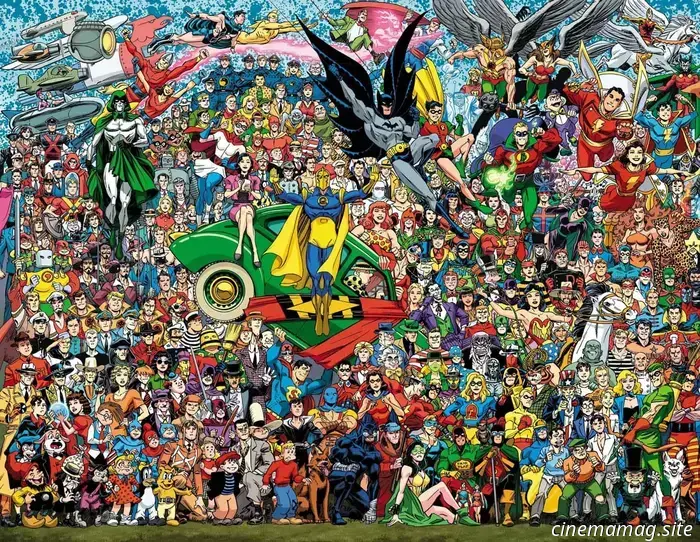 Preview of New History of the DC Universe #1 - Comic Book
DC Comics will launch New History of the DC Universe #1 on Wednesday, and you can take a look at the official preview for an early glimpse of the issue below. To commemorate 90 years of DC, devoted fan and writer Mark Waid revisits the origins of the DC Universe in a four-part series […]
Preview of New History of the DC Universe #1 - Comic Book
DC Comics will launch New History of the DC Universe #1 on Wednesday, and you can take a look at the official preview for an early glimpse of the issue below. To commemorate 90 years of DC, devoted fan and writer Mark Waid revisits the origins of the DC Universe in a four-part series […]
Director Mike Flanagan of The Life of Chuck discusses themes of horror, hope, and insights inspired by RuPaul.
The director of The Life of Chuck, Mike Flanagan, dedicated years to making films and working in reality television before he leveraged a Kickstarter campaign to achieve success with the
